When you’re not feeling your best, all you want is to be surrounded by people who comfort, support, and truly care for you. And for many, that go-to person is often Mom. But what happens when wanting that comfort becomes a point of conflict?
One woman shared how, after a rough postpartum journey with her first child, she just wanted her mother nearby to help with the emotional and physical toll of recovery. However, her husband’s insistence on “equal grandparent time” is already creating tension. Now expecting her second baby, she opens up about the pressure of managing emotional recovery, family expectations, and the simple need for someone who shows up for her.
Postpartum can be incredibly challenging, and new mothers need all the support they can get

Image credits: Kaboompics.com/Pexels (not the actual photo)
A woman shared how her husband insisted that his mother should visit just as often as hers after childbirth
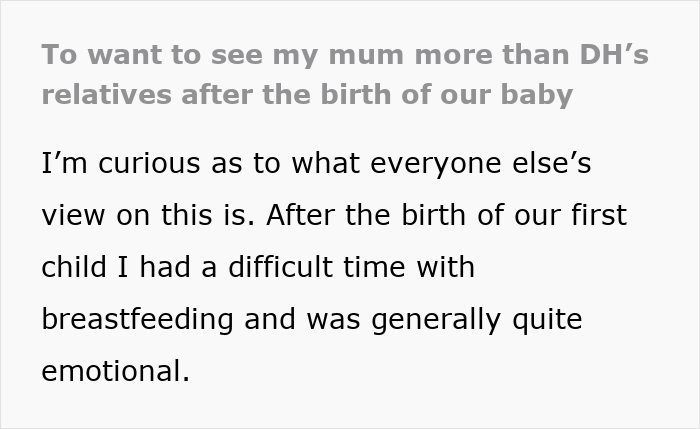
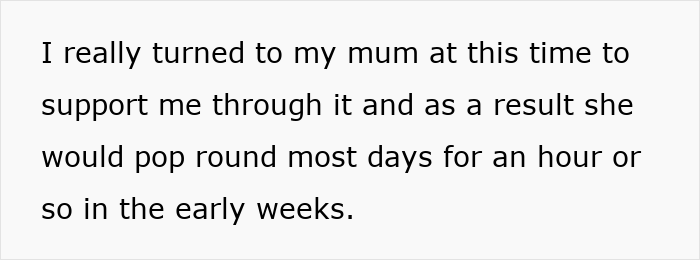
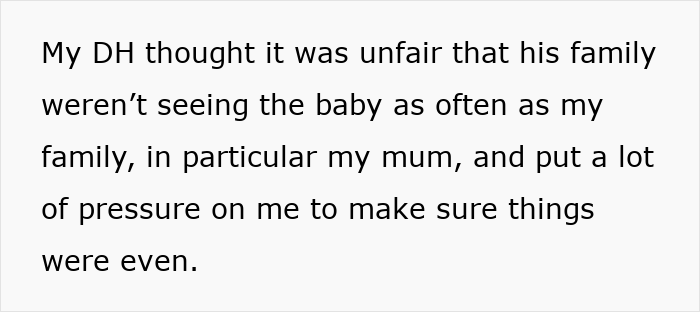
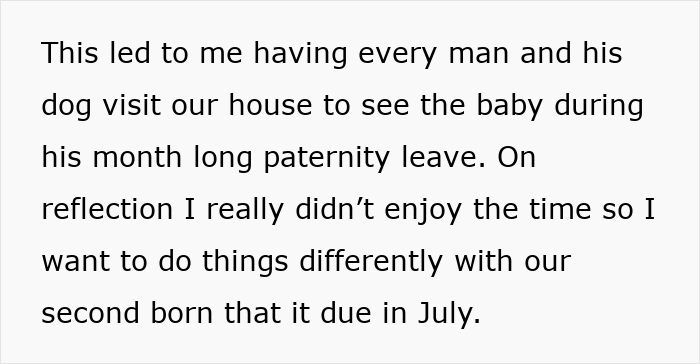
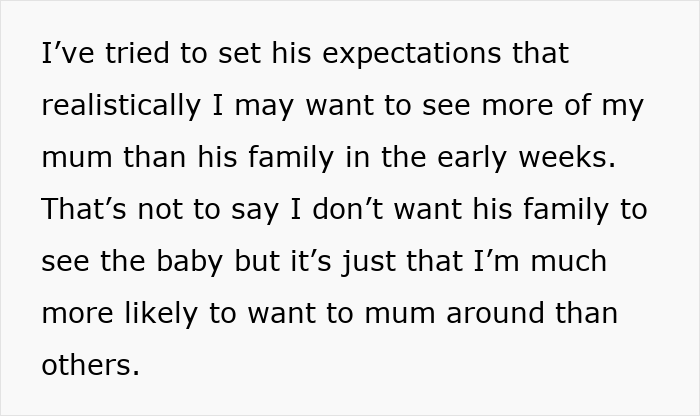

Image credits: Pavel Danilyuk/Pexels (not the actual photo)
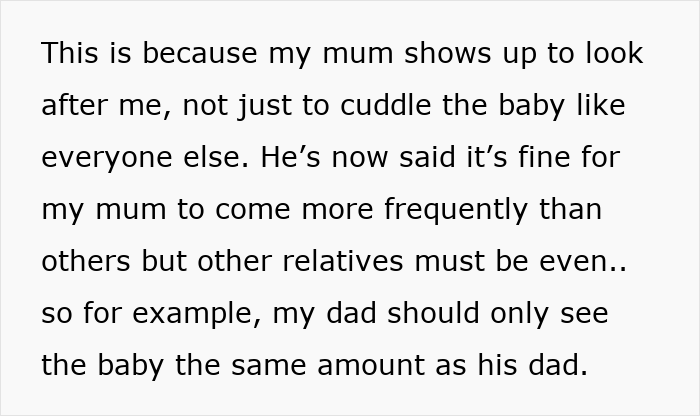
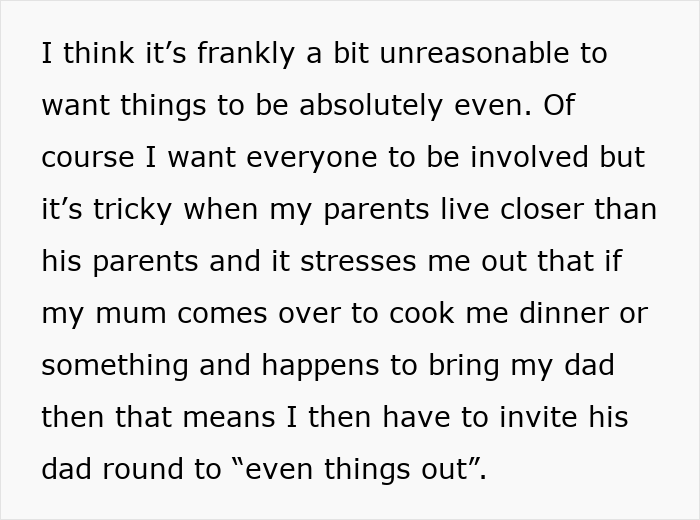
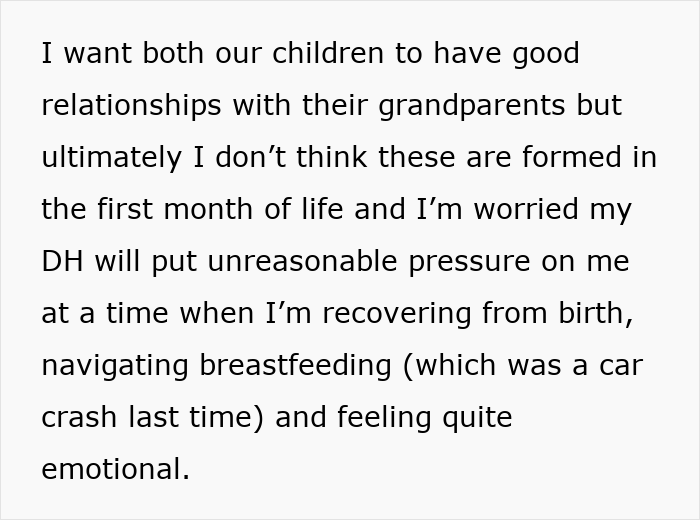
Image credits: stardust1994
She went on to share more details about her in-laws’ visits
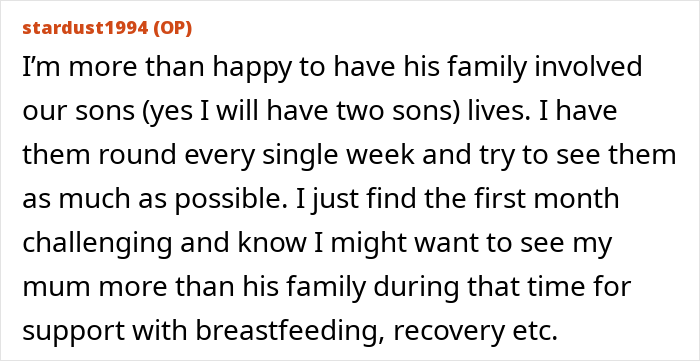
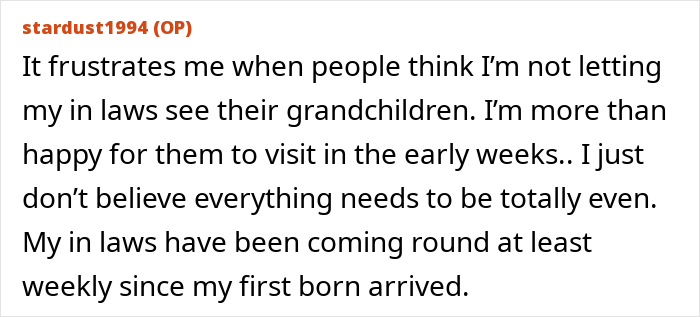
Many women encounter challenges with breastfeeding and need both support and guidance to navigate this sensitive phase
Apart from women who have experienced childbirth firsthand, it’s tough for most of us to grasp what really goes on during and after pregnancy. It’s not just physical—the emotional rollercoaster and hormone surges make things even more intense. And here’s the thing: giving birth isn’t where the story ends. In many ways, it’s just the beginning of a long, and often challenging road to healing and adjusting.
To understand it better, we spoke to Dr. Smita Salunke, MBBS, DGO, FCPS Consultant and Obstetrician-Gynaecologist from Mumbai. She explained, “After childbirth, a woman’s body begins a process called the postpartum period, which lasts about six weeks but can stretch longer emotionally and physically. Hormones fluctuate rapidly, leading to mood swings, fatigue, and even crying spells, commonly known as the ‘baby blues.’”
One of the most overlooked issues postpartum is the sheer lack of sleep. Dr. Salunke added, “Between nighttime feedings and physical recovery, new mothers often function on little to no sleep. Offering to hold the baby for a couple of hours so she can rest uninterrupted can make a significant difference in her health and mood.” Sometimes, the simplest help makes the biggest impact.
Let’s talk breastfeeding, another area many new moms struggle with silently. “Many women also experience breastfeeding challenges, from low milk supply and latching difficulties to painful engorgement,” she said. “Emotional support is critical here, but so is access to lactation consultants who can guide them patiently and without judgment.”
Beyond the emotional and hormonal shifts, there’s the actual physical toll birth takes on the body. “Postpartum recovery isn’t just emotional, it’s physical too,” said Dr. Salunke. “Women may have stitches, sore muscles, vaginal bleeding, and even pelvic floor issues. Respect her space and don’t expect her to be physically active right away. Helping with chores or cooking meals is a huge relief.”
A well-balanced diet is essential for a mother’s recovery and directly supports the health and development of the baby
And let’s not forget about mental health. “If low mood persists beyond two weeks, or there are signs of withdrawal, anxiety, or disconnection from the baby, it could be postpartum depression,” she cautioned. “This is treatable, and encouraging her to talk to a professional is essential, not optional.” Early support can make all the difference here.
Partners have a huge role, too. “Husbands and partners play a vital role in postpartum care,” she said. “Emotional validation, sharing responsibilities, attending checkups together, and being sensitive to her needs go a long way in strengthening the partnership during this fragile time.” It’s not just about the baby, it’s about being present for the mother, too.
Good nutrition is also a part of healing that often gets ignored in the chaos. “Postpartum women need balanced meals rich in iron, protein, and fluids, especially if breastfeeding,” she noted. Loved ones, if you’re wondering what to do, cook her a warm meal or drop off a care basket. It’s one of the kindest things you can do.
There’s also the matter of support, and not all support is created equal. “The mother’s support system matters immensely,” she explained. “If one parent or in-law is more helpful emotionally or practically, that’s okay. Support isn’t about equal visits; it’s about who shows up for the mother.” It’s not a scorecard, it’s about real care.
And lastly, don’t let her feel like she has to do it alone. “Remind her it’s okay to ask for help. New mothers often feel they must do it all alone, but that’s neither realistic nor healthy,” Dr. Salunke advised. “A warm, understanding circle: friends, family, or professionals, can make all the difference in the early days of motherhood.”
In this particular situation, the author simply needed her mother’s support during those crucial early days. Do you think her request was unreasonable or was it her husband who was being a bit insensitive?
Many online agreed the author deserved help from her mother and felt her husband was being unreasonable

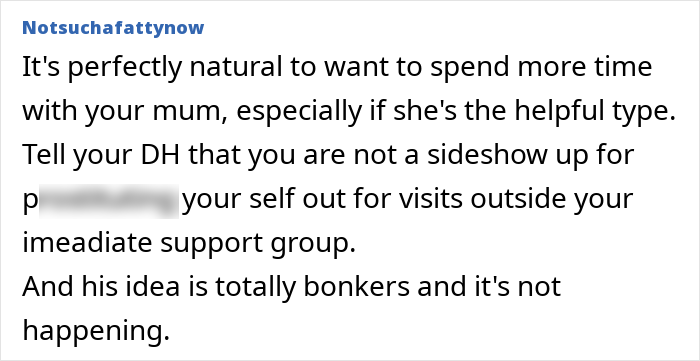




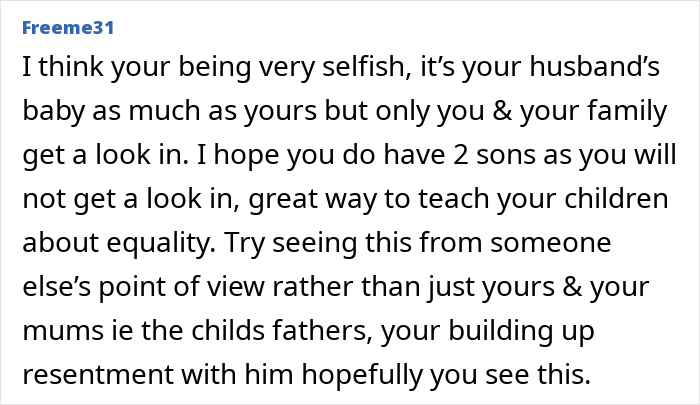
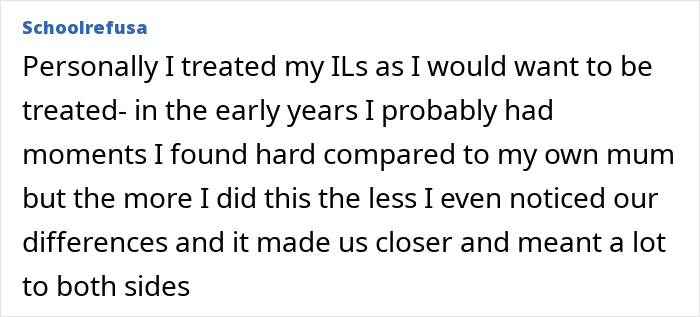


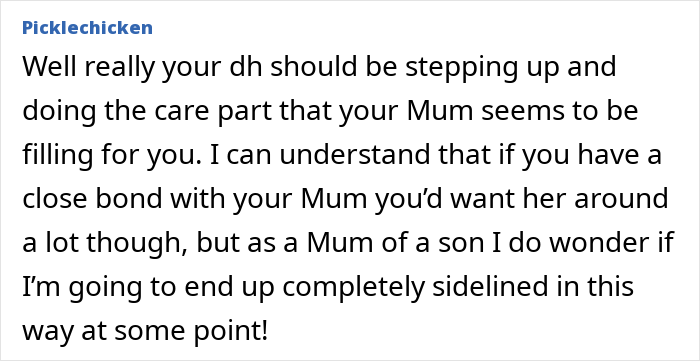


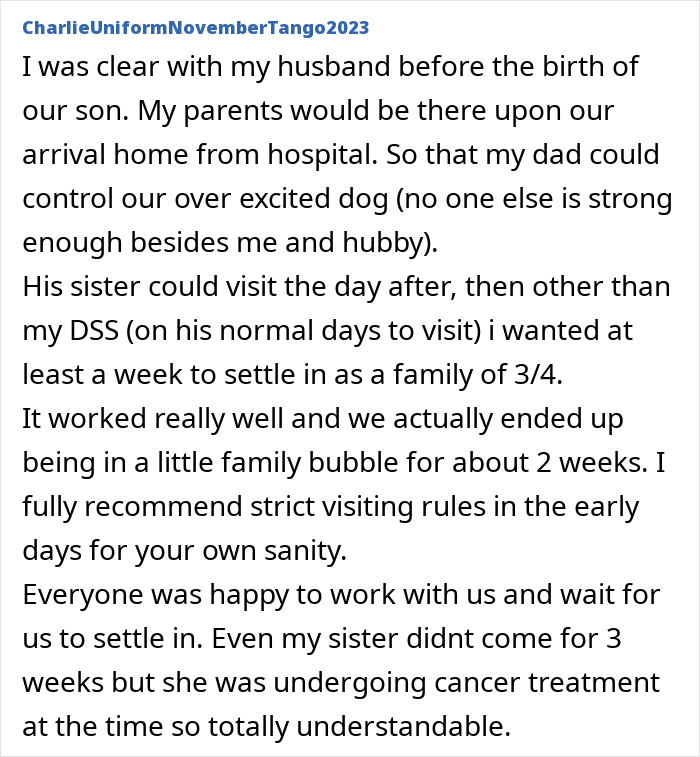
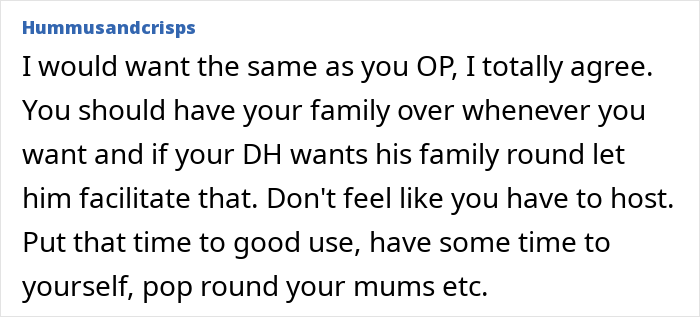
from Bored Panda https://ift.tt/BWe8HA7
via IFTTT source site : boredpanda